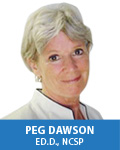 Important Notice:
Important Notice:
Online registration is now CLOSED for this conference. You can arrive up to one hour early to register at the door.
Presented by Steven G. Feifer, D.Ed., ABSNP and Steven T. Olivas, Ph.D., HSP and Christine Dargon, Ph.D. and Peg Dawson, Ed.D., NCSP and Kathy Morris, M.Ed. and MaryAnn Brittingham, MS and Kelli Sandman-Hurley, Ed.D and Tracy Block-Zaretsky, BA and Jay Berk, Ph.D.
Wednesday, November 6, 2019 – Friday, November 8, 2019 | Winnipeg, mb
Online registration is now CLOSED for this conference. You can arrive up to one hour early to register at the door.
Please note, there have been changes made to this event. Please see the event page for the most up to date information.
Wednesday, November 6, 2019 – Friday, November 8, 2019
8:30am – 4:00pm
Victoria Inn Hotel and Conference Centre
1808 Wellington Avenue, Winnipeg, MB
phone: 204.786.4801
website: https://winnipeg.vicinn.com/
Stress Trauma and Learning: How to Develop Brain-Based Interventions
Reading, Writing and the Brain: Developing Effective Interventions
Education and Clinical Professionals: K–12 Classroom Teachers, School Counsellors/Psychologists, Learning Assistance/ Resource Teachers, School Administrators, School Paraprofessionals including Special Education Assistants, Classroom Assistants and Childcare Workers. All other professionals who support students including but not limited to: Nurses, Social Workers, Psychologists, Clinical Counsellors, Family Therapists, Occupational Therapists, Speech Language Pathologists, Addiction Counsellors, Youth Workers, Mental Health Workers, Probation Officers, and Early Childhood Educators.
Parents, Caregiver, Foster Parents, Grandparents, and Extended Family raising a child.
8:30am - 9:45am November 6, 2019
COURSE DESCRIPTION:
This workshop will explore the neural underpinnings of stress, trauma, and emotional dysfunction in children and its relative impact upon learning. Environmental deprivation, poverty, childhood abuse, witnessing violence, and parental neglect can impact both cognitive and social-emotional development in children.

Steven G. Feifer, D.Ed., ABPdN is dually trained as both a nationally certified school psychologist and board certified pediatric neuropsychologist, having completed research stints at the National Institutes of Health. Dr. Feifer has earned numerous distinctions throughout his career including…
9:45am - 10:45am November 6, 2019
COURSE DESCRIPTION:
Over 30 Proven and Effective Brief Interventions for Children and Adolescents with Emotional and Behavioural Problems will guide you through focused, clear and proven approaches to working with children and youth. Every professional who seeks to fill their toolbox with tested methods will leave this seminar with a wealth of fresh ideas and rejuvenated spirits.

Steven T. Olivas, Ph.D., HSP, is a Licensed Psychologist in Private Practice in Middle Tennessee. He began his practice career in 1991 when ADHD was exploding onto the scene, and has enjoyed working with the energy and spontaneous creativity of children ever…
11:00am - 12:00pm November 6, 2019
COURSE DESCRIPTION:
The increasing rate of stress and trauma to children, which includes divorce, family breakdown, violence in society, the media and, has produced a “shell shocked” generation suffering from anxiety in many cases. The challenge for educators and clinicians is to recognize anxiety in children and help them cope. Dr. Dargon will teach you how and why anxiety develops in children and adolescents.

Christine Dargon, Ph.D., having worked in clinical practice for over 20 years, now focusses her time on speaking and education. Dr. Dargon did graduate research and her dissertation on rape-related PTSD and began working with rape survivors over 25 years…
1:15pm - 4:00pm November 6, 2019
COURSE DESCRIPTION:
This workshop will explore the neural underpinnings of stress, trauma, and emotional dysfunction in children and its relative impact upon learning. Environmental deprivation, poverty, childhood abuse, witnessing violence, and parental neglect can impact both cognitive and social-emotional development in children. Schools can enhance emotional wellness through early prevention efforts, appropriate assessment strategies, and an improved school climate to foster emotional growth for all children. The presentation will conclude with a discussion on how every school can become a “trauma-informed” school to better meet the diverse needs of all learners. Specific classroom accommodations, school-based interventions, and targeted coping strategies will be presented for at-risk students.
COURSE OBJECTIVES:
1:15pm - 4:00pm November 6, 2019
COURSE DESCRIPTION:
Over 30 Proven and Effective Brief Interventions for Children and Adolescents with Emotional and Behavioural Problems will guide you through focused, clear and proven approaches to working with children and youth. Every professional who seeks to fill their toolbox with tested methods will leave this seminar with a wealth of fresh ideas and rejuvenated spirits. With nearly 30 years of clinical experience and a background in improvisational comedy, Dr. Steve is a strong proponent of “Edu-tainment”. He uses wit and humour to enhance your learning experience, improving the retention and utilization of the skills covered. You will leave this workshop with new strategies for success and techniques to revitalize your interactions with students.
COURSE OBJECTIVES:
COURSE OUTLINE:
1:15pm - 4:00pm November 6, 2019
Other co-occurring disorders (e.g. behaviour problems, medical conditions, depression, ADHD, learning disabilities, selective mutism) will also be discussed. Emphasis will be on creative interventions involving insight- oriented, cognitive-behavioural, biological, mindfulness, expressive arts and family systems approaches.
COURSE OBJECTIVES:
COURSE OUTLINE:
Nature and Causes of Anxiety
Seven Key Anxiety Disorders
Co-Occurring Disorders
Therapeutic Approaches
Interventions and Self-Regulation Strategies
8:30am - 9:45am November 7, 2019
COURSE DESCRIPTION:
Children and adolescents who struggle with self -regulation often look like those who just aren’t paying attention, have difficulty with emotional control, blurting out answers, have difficulty making transitions and/or purposely not controlling themselves. They may be unaware of the connections of their behaviour and the consequences of the behaviour. If you don’t have self-regulation, you may act out, get placed in timeout, sent to the principal’s office, then miss important learning time. A downward spiral occurs as the student gets more upset and continues to act out when given punitive consequences.
Executive functioning changes radically over the first few years, continues to improve quickly throughout adolescent years and, finally, during early adulthood years, the frontal lobes and prefrontal lobes are activated and connected to other regions of the brain. Executive function skills can be trained. It’s just like going to the gym. The more one practices these strategies for metacognition and self-regulation, the neural connections will be strengthened.
The beginnings of executive function and self-regulation skills appear in the neurotypical brain around 4 years of age. However, what happens when the prefrontal lobe and frontal cortex are compromised due to faulty brain wiring and sensory traffic jams, such as seen in autism spectrum disorders, attention deficit disorders, anxiety disorders, mood disturbances, behaviour disorders, post-traumatic disorders, poverty, attachment disorders?
This keynote will address practical strategies that meet the needs of those children and adolescents who are impacted by these differences in their brain maturation. However, the participant will realize that these strategies apply to ALL students! The purpose is to provide practical tools for those clinicians, educators, therapists or parents who are directly involved in working with children and adolescents. This seminar is designed for those who are “working in the trenches.”

Kathy Morris, M.Ed., has been a speech therapist, teacher for self-contained programs (including students with autism, severe behavioural difficulties, and cerebral palsy), resource teacher and first grade teacher. She was also a diagnostician/supervisor for all grade levels. She was a LIFE…
9:45am - 10:45am November 7, 2019
COURSE DESCRIPTION:
Everyone wants to know how to reach their students who are unmotivated, underperforming and claim to not care about school. This innovative seminar will demonstrate successful strategies you can use in your classroom or school to make positive changes in these challenging students.

MaryAnn Brittingham, MS, holds a master’s degree in family and child counselling from Long Island University and a bachelor’s degree in elementary and special education from D’Youville College. She has over 38 years of experience as a special education teacher…
11:00am - 12:00pm November 7, 2019
COURSE DESCRIPTION:
This keynote will examine reading and written language disorders from a brain-based educational perspective, and classify each disorder into distinct subtypes. There will be a detailed discussion linking each learning disorder’s subtype with scores of evidence based interventions.
1:15pm - 4:00pm November 7, 2019
COURSE DESCRIPTION:
Children and adolescents who struggle with self -regulation often look like those who just aren’t paying attention, have difficulty with emotional control, blurting out answers, have difficulty making transitions and/or purposely not controlling themselves. They may be unaware of the connections of their behaviour and the consequences of the behaviour. If you don’t have self-regulation, you may act out, get placed in timeout, sent to the principal’s office, then miss important learning time. A downward spiral occurs as the student gets more upset and continues to act out when given punitive consequences.
Executive functioning changes radically over the first few years, continues to improve quickly throughout adolescent years and, finally, during early adulthood years, the frontal lobes and prefrontal lobes are activated and connected to other regions of the brain. Executive function skills can be trained. It’s just like going to the gym. The more one practices these strategies for metacognition and self-regulation, the neural connections will be strengthened.
The beginnings of executive function and self-regulation skills appear in the neurotypical brain around 4 years of age. However, what happens when the prefrontal lobe and frontal cortex are compromised due to faulty brain wiring and sensory traffic jams, such as seen in autism spectrum disorders, attention deficit disorders, anxiety disorders, mood disturbances, behaviour disorders, post-traumatic disorders, poverty, attachment disorders?
This afternoon session will address practical strategies that meet the needs of those children and adolescents who are impacted by these differences in their brain maturation. However, the participant will realize that these strategies apply to ALL students! The purpose is to provide practical tools for those clinicians, educators, therapists or parents who are directly involved in working with children and adolescents. This seminar is designed for those who are “working in the trenches.”
COURSE OBJECTIVES:
COURSE OUTLINE:
Drawing on over 45 years of professional experience, Kathy will lead you through dynamic discussions, video case examples and demonstrations providing dozens of strategies (30+) you can implement immediately with children/adolescents in any setting. Walk away with an array of practical strategies for:
1:15pm - 4:00pm November 7, 2019
COURSE DESCRIPTION:
Everyone wants to know how to reach their students who are unmotivated, underperforming and claim to not care about school. This innovative seminar will demonstrate successful strategies you can use in your classroom or school to make positive changes in these challenging students. Many of us are frustrated with the numerous students who have “checked out,” are disengaged, unmotivated, and underperforming. We know the symptoms, but don’t always know the solutions. The good news is that there is hope and there are strategies to begin to stop the cycle of helplessness these students experience. Join behaviour expert, MaryAnn Brittingham , in this one‑day seminar that will cover practical ideas, strategies and techniques to help increase your success with these challenging students. She will give you numerous ideas and strategies to help you guide students toward making positive behaviour changes.
Dear Colleague:
As educators, we are under increased pressure to develop a repertoire of behavioural intervention skills that will allow us to meet the needs of all students, including students with serious behavioural problems, even though there is very limited training on what really works. The usual methods, such as sticker charts and emphasis on students’ performance to gain rewards or sending students to the principal’s office, usually fall flat with “I don’t care” and underperforming students.
When working with “I don’t care” and unmotivated students, it is critical to keep in mind that you cannot change anyone except yourself, but you can assist others to make their own changes. The good news is, with the right help, students can learn and change their behaviour. This seminar will teach you strategies to inspire students to want to change their behaviour. This approach focuses on internal encouragement rather than external rewards and punishment. I will walk you through all of the steps and provide dozens of examples as well as demonstrate sound techniques and activities that can enrich what you are already doing in the classroom.
This seminar is filled with concrete strategies for classroom teachers, behaviour specialists and counsellors. It provides detailed and helpful suggestions that support you in anticipating and addressing repeated and often overwhelming behaviours. You will learn realistic, research‑based strategies that will make a difference in how you view and respond to students.
I hope you will join me in this engaging, thought‑provoking seminar to explore new ways to deal effectively with your “I don’t care” students.
Sincerely,
MaryAnn Brittingham
COURSE OBJECTIVES:
1:15pm - 4:00pm November 7, 2019
COURSE DESCRIPTION:
Four universal truths when teaching reading will be shared, in addition to five essential steps for effective written language instruction. There will also be a discussion on new research developments revealing that brain chemistry and neural pathways can actually be altered based upon effective interventions. We explore the neuropsychological underpinnings of the writing process to assist educators and mental health professionals in both diagnosing and remediating written language disorders in children. The ability to generate and produce written language requires multiple linguistic skills involving both phonological and orthographical functioning (the elementary components of language), word retrieval skills, executive functioning skills to organize inner thoughts and ideas.
COURSE OBJECTIVES:
8:30am - 9:45am November 8, 2019
COURSE DESCRIPTION:
Executive skills are sometimes called “the hidden curriculum.” They are skills such as task initiation, sustained attention, working memory, planning, organization, and goal-directed persistence that are absolutely critical to school success, yet curriculum standards seldom if ever explicitly reference these skills.

Dr. Peg Dawson: In over 40 years of clinical practice, Dr. Peg Dawson has worked with thousands of children who struggle at home and in school. At the center of their struggles are often weak executive skills. Along with her…
9:45am - 10:45am November 8, 2019
COURSE DESCRIPTION:
In this keynote participants will experience a dyslexia simulation that will include experiencing difficulty with reading, writing and processing in conjunction with a discussion of the signs and symptoms of dyslexia. Participants will learn about many popular myths about dyslexia and their realities.

Kelli Sandman-Hurley, Ed.D. is an author and co-founder of the Dyslexia Training Institute. Dr. Kelli is a certified special education advocate assisting parents and children through the Individual Education Plan (IEP) and 504 Plan process. She has training in mediation…
11:00am - 12:00pm November 8, 2019
COURSE DESCRIPTION:
Dr. Berk has become fully aware that over the years there has been a growing area of concern for individuals and was pleased to see that recently the World Health Organization announced a diagnosis of electronic gaming addiction as a formalized diagnostic tool.

Jay Berk, Ph.D., is a licensed clinical psychologist and an internationally recognized expert in the child/adolescent behavioural field who brings both a clinical and education perspective to his work with children, adolescents and their families. For over 25 years, Dr. Berk…
1:15pm - 4:00pm November 8, 2019
COURSE DESCRIPTION:
Executive skills are sometimes called “the hidden curriculum.” They are skills such as task initiation, sustained attention, working memory, planning, organization, and goal-directed persistence that are absolutely critical to school success, yet curriculum standards seldom if ever explicitly reference these skills. Neuroscientists now tell us that these skills take a minimum of 25 years to reach full maturation, and the course of that development is influenced by experience and exposure, by modelling, practice, and direct instruction. This workshop will provide participants with a framework for understanding these key skills, how they develop in diverse populations, and how to support executive skills by embedding them into classroom routines and lessons and by tailoring interventions to meet the needs of individual students and classrooms.
COURSE OUTLINE:
» Overview of Executive Skills
• Definitions
• Underlying Theory
» Executive Skill Development Across the Lifespan
• Normal executive skill development from infancy through adulthood
• Negative influences on executive skill development (birth issues, head injuries, and disorders such as ADHD, Autism Spectrum Disorder)
» Assessment of Executive Skills
• Parent/Teacher/Student Interviews
• Behaviour Rating Scales
» Modifying the Environment to Support Students with Weak Executive Skills
• Changing the Physical or Social Environment
• Modifying Tasks
• Changing the Way Adults Interact with Students
COURSE OBJECTIVES:
1:15pm - 4:00pm November 8, 2019
COURSE DESCRIPTION:
In this course participants will experience a dyslexia simulation that will include experiencing difficulty with reading, writing and processing in conjunction with a discussion of the signs and symptoms of dyslexia. Participants will learn about many popular myths about dyslexia and their realities. Appropriate remediation for students with will be described and participants will have the opportunity to practice those strategies. We will also discuss current accommodations available to children and adults with dyslexia.
Additionally, participants will be provided an overview of Structured Word Inquiry (SWI) and how to begin to use SWI to provide remediation. SWI provides a logical process, based on linguistics, for analyzing and developing an understanding of the underlying structure of the spelling of English words. Developing true understanding of spellings will assist students with reading and spelling. SWI is instruction that assists all students, those with or without dyslexia. Participants will learn how to support students through word investigations to understand the spelling of any English word so instructors no longer utter, “Well, English is just crazy, you will have to memorize that word?
COURSE OBJECTIVES:

Tracy Block-Zaretsky is the co-founder of the Dyslexia Training Institute. She has provided remediation for children and adults with dyslexia for the past 20 years and has developed and taught workplace and family literacy program. She is a certified Special…
1:15pm - 4:00pm November 8, 2019
COURSE DESCRIPTION:
Children diagnosed with Oppositional Defiant Disorder (ODD) can present a monumental challenge to therapists, teachers, parents and siblings. ODD and other conduct problems are the single greatest reasons for referrals to outpatient and inpatient mental health settings for children, accounting for at least half of all referrals. Complicating the success of therapeutic interventions is the high rate of comorbidity with anxiety and depressive disorders or ADHD.
Current research also correlates a variety of cognitive skill deficits including executive function, emotional regulation, language processing, and social processing. These complicating comorbidities and correlations mean that ODD often requires multidisciplinary assessment and components of mental health care, case management, and educational intervention for students and clients to improve.
This dynamic two day workshop will address a full range of behavioural disturbances, from mild to severe, in order to identify the therapeutic techniques that have proven effective. Participants will review and discuss strategies which can be immediately applied across a variety of settings including home, community, social groups, classrooms, or therapeutic.
Participants will examine the intersection of ODD with a variety of issues such as trauma, ADD, learning disabilities, bipolar disorder, and depression and discuss how these affect and alter treatment decisions. Participants will leave this workshop with a much improved diagnostic and treatment approach to ODD and other behavioural disorders.
Benefits to Attending
Today’s Impact on Behaviour in Children/ Adolescents
Why Children Become Oppositional & Defiant
The Diagnosis of Oppositional Defiant Disorder
Related Issues/Disorders that Impact Oppositional Behaviours
The Impact of Medications
Intervention Strategies to Reduce Passive Aggressive, Disruptive & Violent Behaviours
Intervention Strategies That Do Not Work & How to Fix Them
COURSE OUTLINE:
Intervention Options in a Variety of Settings
Strategies to Work with Parents & Staff Members
COURSE OBJECTIVES:
| Registration | Early bird Fee | Regular Fee |
|---|---|---|
| Individual 1 Day Enrollment | $249 | $269 |
| Individual 2 Day Enrollment | $449 | $469 |
| Individual 3 Day Enrollment | $639 | $659 |
| Group 3-7 | $619 | $639 |
| Group 8-14 | $599 | $619 |
| Group 15+ | $579 | $599 |
| Full-Time Student | $579 | $599 |
All fees are in Canadian dollars ($CAD).
Fees do not include applicable taxes (5% GST).
Early bird cutoff date: November 3, 2019
The early bird date has passed. Regular rates apply.
Please review our Registration Terms and Conditions for information on our cancellation policy, payment policies, rebates, and more. You must agree to our Terms and Conditions to register for a workshop or conference.
Register Online Download Registration Form (.PDF) Register your Group
All brochures and forms are provided in .PDF format.
If you are unable to open our files, we recommend downloading Adobe Reader for free.
Brochure (.PDF) Registration Form (.PDF)
Exhibitors are welcome at this event. We are pleased to offer sponsorship opportunities to businesses and organizations that provide services related to nursing, psychotherapy, addictions treatment, counselling, marriage & family therapy, psychology and other related fields.
→ More information
1808 Wellington Avenue, Winnipeg, MB
phone: 204.786.4801
website: https://winnipeg.vicinn.com/
Our rates:
* Please check back at a later time as this information will be updated when corporate/group rates are secured.
When booking hotel rooms, ask for the Jack Hirose and Associates corporate rate. To receive our corporate rate, rooms must be booked one month prior to the workshop date. Please keep in mind hotel rates may fluctuate.
Jack Hirose & Associates is approved by the Canadian Psychological Association to offer continuing education for psychologists. Jack Hirose & Associates maintains responsibility for the program.
† The Alberta College of Social Workers (ACSW) and the Newfoundland and Labrador Association of Social Workers (NLASW) accept CPA-approved CEUs.
* Participants will receive a certificate of completion after every workshop. Workshops are pre-approved for 5.5 or 6 credits per day unless otherwise specified.
* Please contact your accrediting body for more information on individual association requirements.
There are no related events at this time.